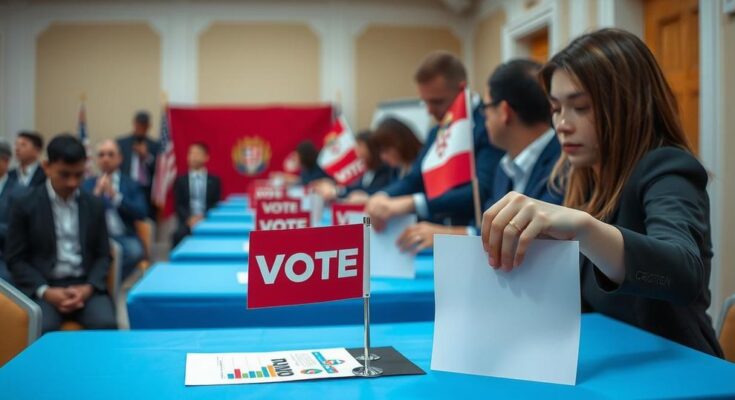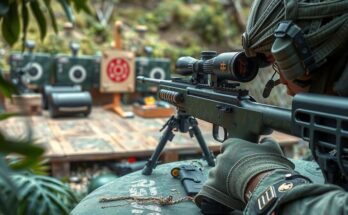Croatia is holding a presidential election where incumbent President Zoran Milanović faces stiff competition from Dragan Primorac and several other candidates. With a contentious political climate focused on NATO and EU relations, Milanović’s criticism of Western support for Ukraine has positioned him as a controversial figure. The election’s first round is set for Sunday, with a likely runoff occurring if no candidate receives a majority.
Croatia is currently engaged in a critical presidential election, where incumbent President Zoran Milanović, known for his left-leaning stance and forthright criticisms of Western military aid to Ukraine, is vying for re-election. Despite his popularity as a former prime minister, Milanović is anticipated not to secure an outright victory in the first round of voting, scheduled for Sunday. He faces fierce competition from seven other candidates, notably Dragan Primorac of the ruling Croatian Democratic Union, setting the stage for a potential runoff on January 12, should no candidate achieve over 50% of the vote.
The political landscape in Croatia has been characterized by escalating tensions between Milanović and Prime Minister Andrej Plenković, who has characterized Milanović as a “pro-Russian” figure and a risk to the nation’s international reputation. While the presidency in Croatia is largely ceremonial, the elected president wields significant political influence and is designated as the commander-in-chief of the military. Milanović’s opposition to NATO and EU support for Ukraine has incited controversy, further complicating Croatia’s participation in global conflicts, despite its membership in these organizations.
Milanović has been vocal about his position against Croatia taking sides in international disputes, previously blocking the nation’s involvement in NATO-led efforts to assist Ukraine. His main rival, Primorac, however, advocates for a strong pro-Western stance, distancing himself from Milanović’s approach by emphasizing unity and Croatia’s positioning in the global sphere. Meanwhile, Marija Selak Raspudić, another candidate, has focused her campaign on pressing economic issues and increasing corruption awareness in the public discourse.
Amid these political tensions, the election marks Croatia’s third significant voting event within the year, following a parliamentary election in April and participation in the European Parliament elections in June. The outcome of this presidential election could potentially influence the nation’s course regarding its alignment with Western powers and the broader implications for national governance.
The presidential election in Croatia represents a key moment in the nation’s political dynamics, particularly against the backdrop of ongoing conflict in Ukraine and varying opinions on Croatia’s role in international relations. President Zoran Milanović, with a style reminiscent of populism akin to figures like Donald Trump, faces a challenging re-election bid marked by internal political rivalries and significant global issues. The incumbent’s controversial positions on NATO and EU policies reflect the increasingly contentious political atmosphere as Croatians assess their future direction in relation to Western alliances.
The Croatian presidential election will not only determine the future of President Zoran Milanović but also influence the nation’s stance in global conflict and its relations with NATO and the EU. As Milanović battles against Prime Minister Plenković’s candidate, Dragan Primorac, the election serves as a referendum on the direction Croatia will take, amidst domestic corruption concerns and broader economic issues. The potential for a runoff suggests that the political debate will continue to evolve, making it an important period for Croatian democracy.
Original Source: www.voanews.com




